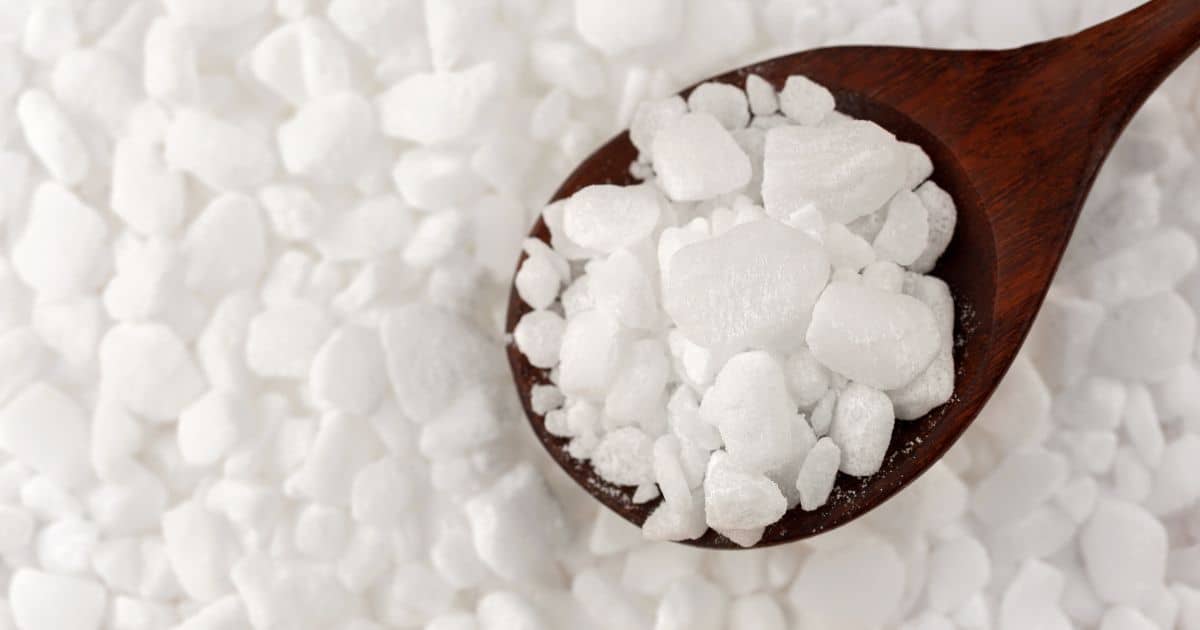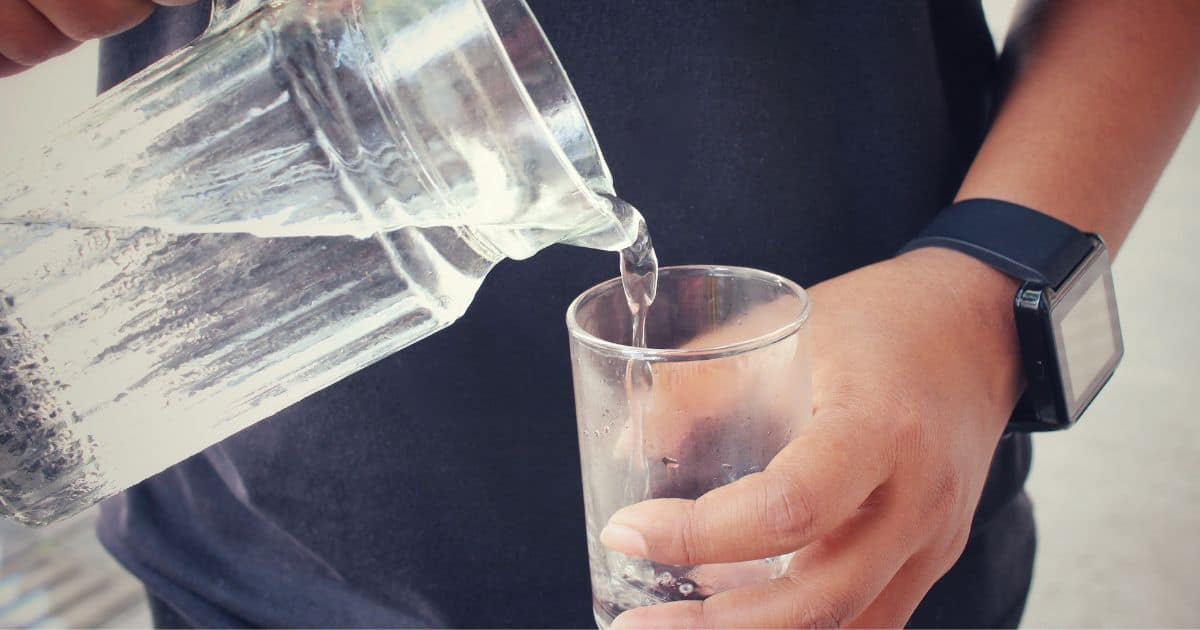We like to share product recommendations with you and hope you like them! Just to make you aware Water Filter Data may collect a small share of sales or other compensation from the links on this page.
Most people drink water without realizing whether it’s soft water or hard water. If you’re wondering what makes water hard or soft, let’s clear that up first. While water itself is clear, it is the concentration of minerals in it that makes the water “hard.”
Hard water can corrode appliances, cause dry skin and hair problems, and leave behind stains on the laundry and sinks. For this reason, water softeners are installed to remove minerals and soften the hard water.
Is soft water safe for consumption though? In short, yes.
Let’s go over drinking softened water side effects, drawbacks, benefits, and more.
How to Tell Whether Water Is Hard or Soft
Characteristics of hard water:
- Soap scum: If you feel a thin film on your hand after washing it with soap and water, the water coming from your tap is hard. This happens when the calcium in the water reacts with the soap. To remove the scum, you may have to wash your hands for longer.
- Spots: Do you have stains and spots on your crockery or silverware when they are washed? These stains are calcium carbonate deposits. Also, hard water tends to leave behind stains on clothing as they come out of the wash. These clothes get worn out faster due to the hardness in water content.
- Low water pressure: The ion deposits from hard water can deposit inside the pipes, leading to lower water pressure and less space inside the pipelines.
Characteristics of soft water:
- Generates a healthy soap lather on hands, clothes, and utensils while washing.
- Leaves hair and skin clean and soft, not dry.
- The water pressure in your pipes is good with no damage done to the plumbing lines.
- There will be no stains and mineral deposits on clothes, sinks, utensils, and other items when they are washed with soft water.
- Due to the sodium levels, you might find the taste of the water is a little different. In many cases, however, the sodium taste is negligible.
How Much Sodium Is In Softened Water?

In a water softener, the calcium and magnesium minerals are swapped in equal proportion with the sodium ions. So, the greater the water hardness, the greater the amount of sodium content needed to make the water soft. If your tap water or drinking water is very hard, your salt-based water softener has to do more work to soften the water.
In other words, the sodium levels in water largely depend on the water’s hardness level initially. For the same reason, the amount of sodium in softened water sometimes reaches the borderline limit.
The level of sodium in softened water increases by approximately 8 milligrams per liter (mg/L) for each grain of mineral ions eradicated from the water. For example, in Arizona, the tap water level usually falls between 12 and 17 grains per gallon.
This simply means that even water that has very high mineral content will convert to soft water with only about 130-140 mg of sodium per liter. For comparison, the USDA report states that in one tablespoon of ketchup, the level of sodium is about 167 mg.
Soft Water Intake with Low-Sodium Diets
People suffering from health conditions related to the heart or blood pressure must keep their sodium intake low. Their sodium per day should be monitored, and they must be particular about avoiding unnecessary sodium in their diet.
For a person with any of the following health issues, it may be required to reduce their sodium diet, and subsequently, the amount of soft water they intake:
- Cardiovascular disease
- High blood pressure
- Kidney issues
So, if you’re on a sodium-restricted diet for the above-listed serious health conditions, ask your doctor before switching over to soft water. Apart from that, the sodium levels in softened drinking water usually pose no health threats to the average population.
Are the Minerals in Hard Water Actually Good for You?

To some people, the process of softening and removing minerals from hard water sounds like it would be a bad thing to do. Especially for those not familiar with soft water, the absence of mineral content from your drinking water might be a big concern for you.
After all, haven’t we all heard of the health advantages of the minerals in bottled water?
However, we actually get our entire daily intake of required minerals that are crucial for our health from our food sources, as opposed to drinking water. So, if you’re deficient in certain minerals and you’re not eating a well-balanced diet loaded with vitamins, your body will not be able to supplement the minerals from drinking water alone.
Therefore, removing hard water from your diet is likely to have zero impact on your overall health.
How Hard Water Becomes Soft Water: Ion Exchange
Ion exchange is the process employed by water softener systems to eradicate minerals like calcium as well as magnesium to convert hard water to soft water. In this method, the hard water moves through a resin bed that contains sodium ions.
When the water crosses the resin layer, the salt ions displace the mineral ions, eradicating magnesium and calcium minerals, thus converting it to soft water.
An ion exchange water softening system must be occasionally regenerated to replenish the ions that draw minerals out of the water. Some systems automatically perform this task, while others might require manually running the regeneration cycle.
Only a small amount of sodium is added to water to make it soft. This addition of salt usually does not make the water harmful, as sodium levels are not very high. In some cases, however, the soft water could have side effects on people suffering from certain health conditions. For washing and laundry, however, soft water is always the better option.
Drawbacks and Benefits of Softened Water
Is your drinking water softened? Let’s weigh the pros and cons of having soft water in your home.
Drawbacks
- Higher Sodium Intake: This addition of extra sodium in soft water could pose health risks for people on a low-sodium diet.
- Missing Out on (Minor) Mineral Benefits: As per the PennState Extension, consuming hard water is not a health hazard. The presence of calcium in hard water not only enhances its taste, but it can also improve your bone and teeth health, and potentially reduces blood pressure and heart disease risks.
Benefits
- Saves your laundry and appliances: Hard water can clog up washing appliances, plumbing, and pipelines. When washing clothes and crockery, hard water leaves mineral residue on the clothes, utensils, glassware, and more. This can make your clothing look dull and your dishes look cloudy.
- Better hair and skin: Hard water can be abrasive to the skin, causing irritations and leaving the hair dull and lifeless. Therefore, the installation of a salt-based water softener could be the best option for people who are tired of dry skin and brittle hair.
- Better taste and lathering: Many people find that they prefer the slight salinity in soft water as far as taste goes. Soft water is also great for washing and showering, as it lathers up easily and does not leave behind a slimy residue.
- Saves your plumbing: Hard water can leave behind deposits of calcium carbonate and other minerals, thus making your plumbing system less efficient, reducing the efficiency of the heating element inside a tea or coffee kettle, and, in some cases, can even lead to blockages in pipes.
Drinking Softened Water Side Effects: In Closing

Apart from special cases where people should avoid soft water due to a sodium-restricted diet, soft water is very safe for consumption, and water-softening systems are safe and reliable in general.
The vast majority of people can consume either hard or soft water with no side effects whatsoever. For those people who need to strictly monitor their sodium intake, they can resort to drinking bottled water or continue to use hard water in their homes. Check the level of sodium in your water supply before you consume it, and ask your doctor if soft water will pose any health concerns for you.
For other purposes like cleaning, laundry, dishwashing, and bathing, go for softened water, as it lathers and cleans much better without leaving any buildup or residue behind.
If you’re concerned about hard water clogging your pipelines and reducing the water pressure, you should consider getting a water softener installed as well. But first, you should determine if the water in your home needs softening in the first place.

Ph.D. graduate working as a water quality consultant for many government agencies helping them find solutions to the ever-growing problem of polluted water. Loves a good coffee!



